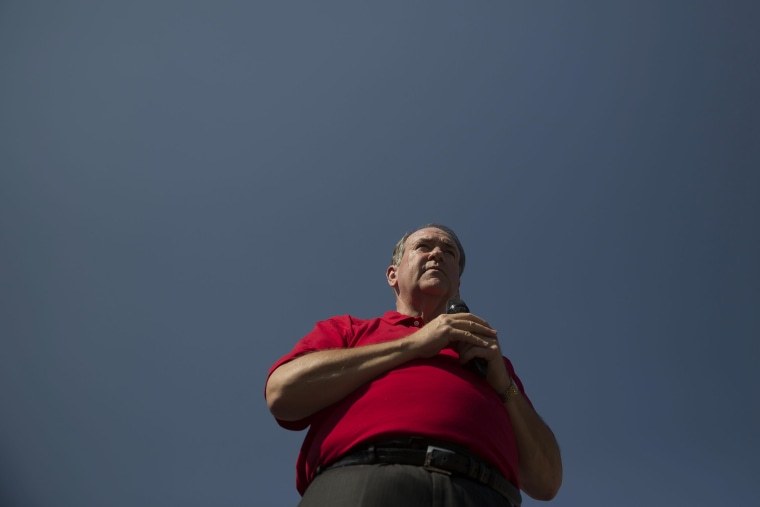Jeb Bush got the ball rolling a few months ago, vowing 4% GDP growth in his first term as president. The number wasn't based on any policy analysis; the Republican just picked a nice, impressive sounding number out of the air -- and in the process promised to deliver faster economic growth than any U.S. president in modern history.
Just as discouraging, the projection started a bidding war of sorts. Chris Christie said he'd match Bush's unrealistic growth target if elected. Scott Walker, again based on nothing but his imagination, said his economic plan -- despite its failures in Wisconsin -- could create 4.5% growth.
Mike Huckabee, meanwhile, will see Walker's 4.5% and raise him a little more.
Mr. Huckabee, the winner of the 2008 Iowa caucuses, who is running as an economic populist, said 6 percent growth or more -- notably upping the ante over Jeb Bush's promise of 4 percent growth -- would be possible through what he calls the Fair Tax, a type of national sales tax. Economists have expressed skepticism at Mr. Bush's promise of 4 percent growth, so Mr. Huckabee's 6 percent plan may cause even more raised eyebrows.
It's genuinely amazing to watch a post-policy experiment play out in real time. GOP presidential candidates are not only offering vague and unrealistic economic plans, they're also citing growth projections by pointing to numbers they've pulled from their ears. There's no pretense of seriousness; I half expect them to start using words like "gajillion" in their stump speeches.
There are plenty of real, qualified economists -- some are even Republicans -- who are more than capable of conducting substantive analyses and offering credible GDP projections. But a variety of Republican candidates don't see the point. Why bother with substance when they can throw around made-up figures, assuming primary/caucus voters won't care about the difference?
New York's Jon Chait noted the other day that Huckabee's rivals could, in theory, point out how ridiculous his projections are, but they're a little stuck: "[T]here's a weakness in basing your economic message on pulling a crazy number out of thin air: Another candidate can always pull an even crazier number out of thin air."
And that's precisely what's happened. The basic idea is that voters will want to support the candidate with the best and most effective plan. Higher economic growth = better candidate. Why vote a White House hopeful promising to grow the economy at 4% when you can vote for his rival promising 6%?
But if the recent pattern holds, there's nothing stopping other GOP candidates from making up ridiculous numbers of their own. Maybe Rand Paul will promise 8% growth. Perhaps Ben Carson can guarantee 11% growth. Ted Cruz might point to 20% and question why the rest of the field lacks true ambition.
It's all gibberish -- even Jeb's 4% target is plainly absurd -- but in the fantastical world of Republican presidential politics, numbers have no meaning, policy debates are for chumps, and campaign promises can be ludicrous so long as GOP voters don't notice.
